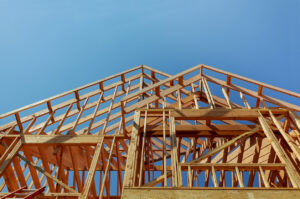2025 Legislative Session: Advocating for Local Housing Solutions and State-Local Partnerships
 Housing was a critical and contentious issue during the 2024 Minnesota State Legislative session, and it is poised to remain a top priority on the state’s agenda in 2025. Cities are at the forefront of the housing conversation, and local leaders must maintain a role in shaping policies at the Capitol that impact their communities.
Housing was a critical and contentious issue during the 2024 Minnesota State Legislative session, and it is poised to remain a top priority on the state’s agenda in 2025. Cities are at the forefront of the housing conversation, and local leaders must maintain a role in shaping policies at the Capitol that impact their communities.
During the 2025 Minnesota State Legislative session, the League of Minnesota Cities will continue to advocate for policies that balance state goals with local needs, ensuring that cities have the flexibility, resources, and authority to build vibrant, affordable communities.
Advocating for Local Decision-Making
The League’s approach to conversations with legislators on housing policy proposals will continue to be open and fair, advocating for policies that preserve the local authority of city officials and their residents when it comes to zoning and land use decisions. If the legislature continues to explore a more active state role in local zoning, the League will advocate for frameworks that are workable for cities. This includes making sure that the policies are scalable, adaptable to varying city sizes, and sensitive to the wide range of housing markets in different regions of the state.
A one-size-fits-all approach will not work for every city, especially considering the vast differences in housing needs from urban centers to rural communities.
Addressing the Housing Shortage
To address the state’s housing shortage, cities have led the way in driving innovation, removing barriers to development, and fostering partnerships with developers to create housing across the spectrum—from affordable to market-rate units.
The challenge of addressing housing needs cannot be solved by rigid, top-down policies that limit local flexibility. We need policies that allow cities to tailor solutions to their unique needs while still addressing the broader state goals of increasing housing availability and affordability.
Value Local Input and Innovation
As cities in Minnesota continue to tackle the housing crisis, it’s crucial that policies work in practice, not just theory. Cities have the experience and insight to know what works and what doesn’t when it comes to development. This is evident in local innovation that is already happening. Cities have adopted zoning and land use ordinances to support affordable housing development, and they have made significant investments to address these needs at the local level. State policy must build on this innovation and provide support—whether through technical assistance, funding, or incentives.
Investing in State-Local Partnerships
State policies should empower cities, providing tools and resources without imposing unfunded mandates. Cities should be able to continue making decisions that align with the unique needs of their communities while receiving the support necessary to ensure those decisions are effective and sustainable.
If we want a successful state-local partnership, the League and our members must hold up our end of the bargain. To remain a trusted voice for cities, we must engage in these discussions with legislators, and city officials should offer constructive feedback when needed. Our aim is not only to critique but also to propose alternative approaches that ensure cities can continue to make decisions about their development while helping to address the housing challenges facing the state.
What’s Needed from State Involvement
If the state continues to seek a more significant role in local zoning and land use decisions, any framework developed must at the very least:
- Recognize Regional Differences: Policies must account for the diverse needs of metro, suburban, and rural areas, allowing cities to retain decision-making authority over how they apply state frameworks to their own communities.
- Support All Levels of Housing Development: Building more housing is a shared goal, but ensuring affordability at all levels is equally important. The state must provide the policy guardrails and resources necessary to keep housing affordable, especially for those most in need.
- Retain Local Decision-Making Authority and Resident Engagement: Cities should have the ability to tailor development requirements to their specific needs, ensuring that residents continue to have a meaningful voice in the development process.
- Encourage Local Innovation: The state should support, rather than preempt, cities that have already made progress in zoning and land use reforms. By building on local successes, cities and the state can continue to guide the next steps in addressing housing challenges.
City officials can partner with the League to advocate for locally led zoning and land use initiatives by sharing their communities’ successes, barriers, and needs with legislators. For more information, contact Daniel Lightfoot at (651) 281-1295 or dlightfoot@lmc.org.

